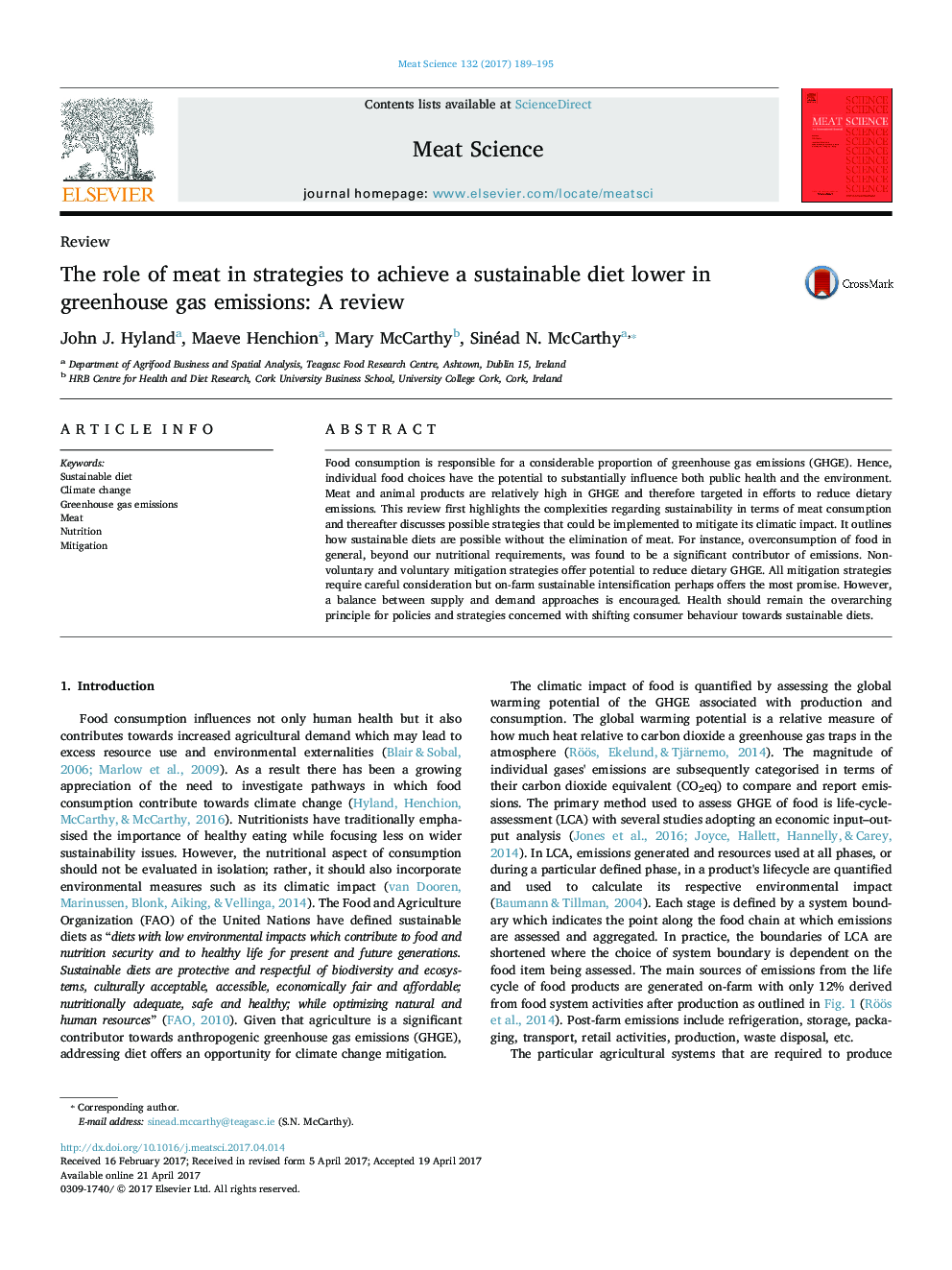| Article ID | Journal | Published Year | Pages | File Type |
|---|---|---|---|---|
| 5543252 | Meat Science | 2017 | 7 Pages |
â¢Outlines the complexity of attaining a diet lower in greenhouse gas emissionsâ¢Demonstrates how meat can be part of a sustainable dietâ¢Assesses possible mitigation strategies than could be implemented to lower dietary greenhouse gas emissions
Food consumption is responsible for a considerable proportion of greenhouse gas emissions (GHGE). Hence, individual food choices have the potential to substantially influence both public health and the environment. Meat and animal products are relatively high in GHGE and therefore targeted in efforts to reduce dietary emissions. This review first highlights the complexities regarding sustainability in terms of meat consumption and thereafter discusses possible strategies that could be implemented to mitigate its climatic impact. It outlines how sustainable diets are possible without the elimination of meat. For instance, overconsumption of food in general, beyond our nutritional requirements, was found to be a significant contributor of emissions. Non-voluntary and voluntary mitigation strategies offer potential to reduce dietary GHGE. All mitigation strategies require careful consideration but on-farm sustainable intensification perhaps offers the most promise. However, a balance between supply and demand approaches is encouraged. Health should remain the overarching principle for policies and strategies concerned with shifting consumer behaviour towards sustainable diets.
